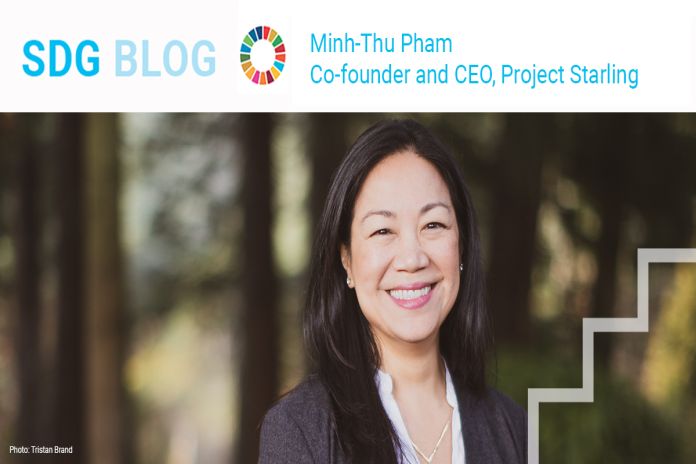By Minh-Thu Pham
Despite being an inherently political institution, the United Nations is not a place where we like to talk about politics – at least explicitly. And yet politics – which determines how our societies are governed, what the rules are, who determines them, and how we manage relations – plays a major role in whether we solve problems together and achieve the aims laid out in ambitious UN agreements.
Those of us focused on achieving the Sustainable Development Goals or addressing climate change, or any number of global challenges must reexamine the state of our politics and figure out how to harness it to deliver results for people.
In a world where crises no longer confine themselves to borders, the interconnected nature of our challenges demands a level of global cooperation that should be unprecedented. But trust in political leadership and in our institutions is eroding. In recent months, widespread discontent has led to historic political shifts worldwide, signaling tremendous demand for change. Leaders have inadequately addressed the public’s demands for meaningful action. The question is, will we respond to and channel that discontent in a way that regains public confidence and deliver transformative change – or will we succumb to the temptation to play it safe, stick to what we know, and avoid taking risks to do things differently? I think we must embrace risk and develop better ways to problem-solve together.
Our collective failure to act has destabilized domestic politics and eroded the foundations of global governance. As a result, our current politics have led to the decline of long-established institutions and the rise of populist movements that offer simplistic, regressive solutions to complex global challenges.
In 2024, about half the world held national elections, and so far, these elections have been marked by a widespread dissatisfaction with the status quo as voters react to economic inequality, the rising cost of living, and the perception that leaders are out of touch with the realities faced by ordinary people. Economic strains have made the perceived costs of the green transition less politically palatable and driven a turn back towards unsustainable energy sources. These trends have fueled a sense that global cooperation and solidarity with people in other parts of the world will make us worse off – a fear that many politicians have used to their advantage.
Countries across the world are dealing with rising global debt, as politicians propose to cut taxes or increase government spending to gain electoral support. And geopolitical tensions and security concerns are incentivizing governments to spend more on defense and, thus, less on social programs or sustainable development.
But the real danger to global stability lies not only in the loss of power by incumbents but also in how we interpret their losses. Did politicians lose support because their constituents want them to turn inward, focus on narrow national interests, and withdraw from the world? Or did they lose support because of their failure to adequately address transnational problems that have made people worse off? What if we responded differently this time? Perhaps the time will soon come when deciding to invest in global cooperation and choosing global solidarity can win elections.
At these crossroads, the UN Summit of the Future taking place among heads of state and government at the UN this September will provide a blueprint for renewing global governance – how we work together, on what issues, and who gets to help determine the rules – which are, essentially, political questions. Importantly, it will help determine whether we move towards a more equitable and collaborative global order or retreat into narrow, nationalistic agendas that further fracture our shared future. In sum, this Summit is important for achieving the SDGs.
History has shown that moments of crisis can turn into occasions of opportunity. The last significant wave of global governance reform was born out of the devastation of global conflict, when political moods had shifted and people viewed humanity more expansively. After immense division, they were ready to collaborate.
Today, we may be on the brink of another such moment. The urgency of the moment demands us to think of politics not as divisive and cynical but as a way to bring in, unite, and inspire hope – to allow more actors to engage, to elevate the voices of the vulnerable, and to shift power and share it with those bearing the brunt of global crises.
That’s what “Leaving No One Behind” has to mean as 2030 approaches. We can’t achieve the SDGs without taking into account the desire of the public for a different kind of politics. Instead, we must respond to public discontent by changing how we make decisions and who we give power to and include in decision-making – by confronting politics head-on and embracing the positive impact it can deliver. The time for unprecedented action is now.
* The views expressed in this blog are the author’s and do not necessarily reflect the opinion of UN DESA.





